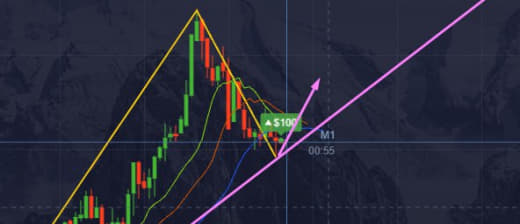Favicon.ico
If you're new to options trading, you may be wondering how those trades are taxed Pocket Option Ro'Yxatdan O'Tish . Here's a rundown of some potential tax pitfalls with options strategies.
Can I make 1k a day trading? If you're wondering how to earn daily 1000 rupees in the share market, consider the following steps: Choose a few stocks to focus on. Before taking any action, monitor the performance of these stocks for at least 15 days. During this time, examine the stocks in several methods using indicators, oscillators, and volume.
How long does it take to get paid from Pocket Option? If you have decided to use an electronic wallet, then you should receive the money within five to ten hours. If, on the other hand, you have decided to make your payment through a bank transfer, the processing of your request might take up to five business days.
Want to trade options? Be sure you understand the tax implications first. Here are some basic things to consider when it comes to buying and selling these contracts on the open market:
Introduction Favicon.ico
 IRS terminology doesn't always match the language used within the financial industry Pocket Option Advertisement . For example, some people who consider themselves to be "traders" (aka day traders or active traders) are more likely to be considered "investors" by the IRS.
IRS terminology doesn't always match the language used within the financial industry Pocket Option Advertisement . For example, some people who consider themselves to be "traders" (aka day traders or active traders) are more likely to be considered "investors" by the IRS.
To be considered a trader by the IRS one must be in the "business of trading," which basically means trading is your day job. Those in the "business of trading" might want to consider meeting with a tax professional and reading IRS publication 550 and IRS Topic No. 429 Traders in Securities.)
For tax purposes, options can be classified into three main categories:
1. Employee stock options
These are generally options contracts given to employees as a form of compensation and aren't traded on the open market. There are two primary types: non-qualified stock options and incentive stock options.
Generally, the gains from exercising non-qualified stock options are treated as ordinary income, whereas gains from an incentive stock option can be treated either as ordinary income or can be taxed at a preferential rate, if certain requirements are met. To learn more about employee stock options, see How Should Equity Compensation Fit Into Your Financial Plan.
2. Equity options
These are options contracts on equities that can be traded on the open market. Puts or calls on individual stocks or ETFs that hold stocks are some examples.
How they're taxed depends on whether you have a long position (where you're the buyer of the option) or a short position (where you're the seller/writer of the option). The table below provides an overview, but be aware that if you're doing more complex options transactions, such as spreads or butterflies, the IRS may apply different tax rules (see below for more details).
Long options
- Long Options (buy)
- If you close the position before expiration
- If you exercise the option
- If the option expires